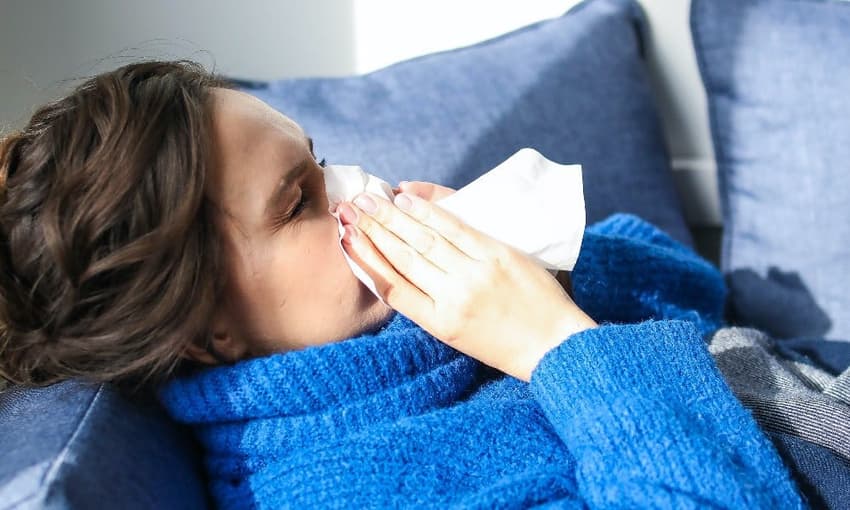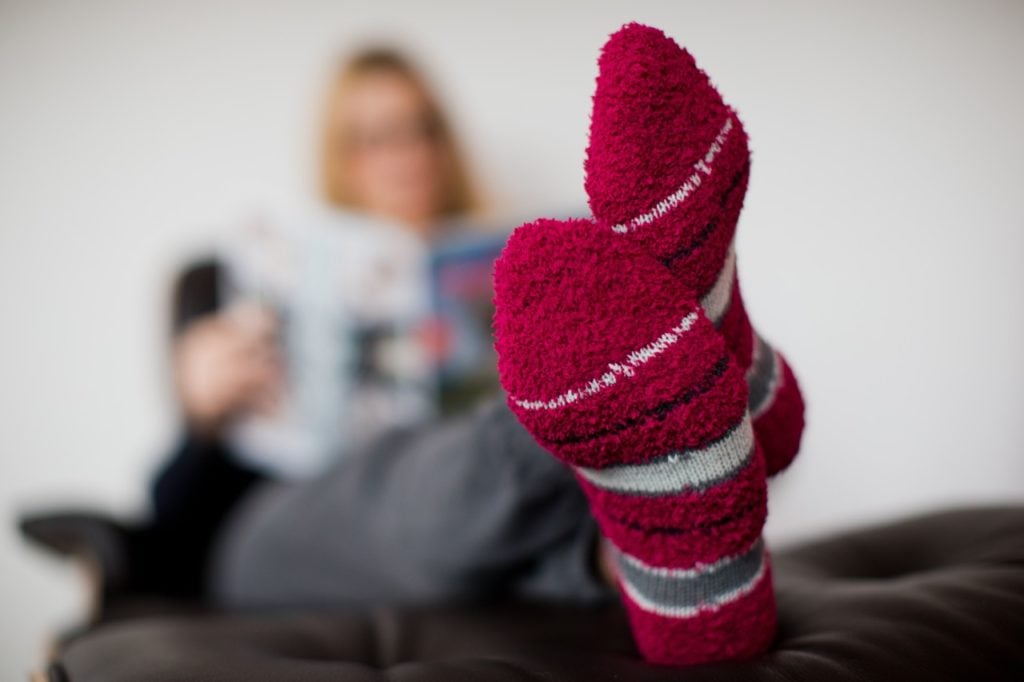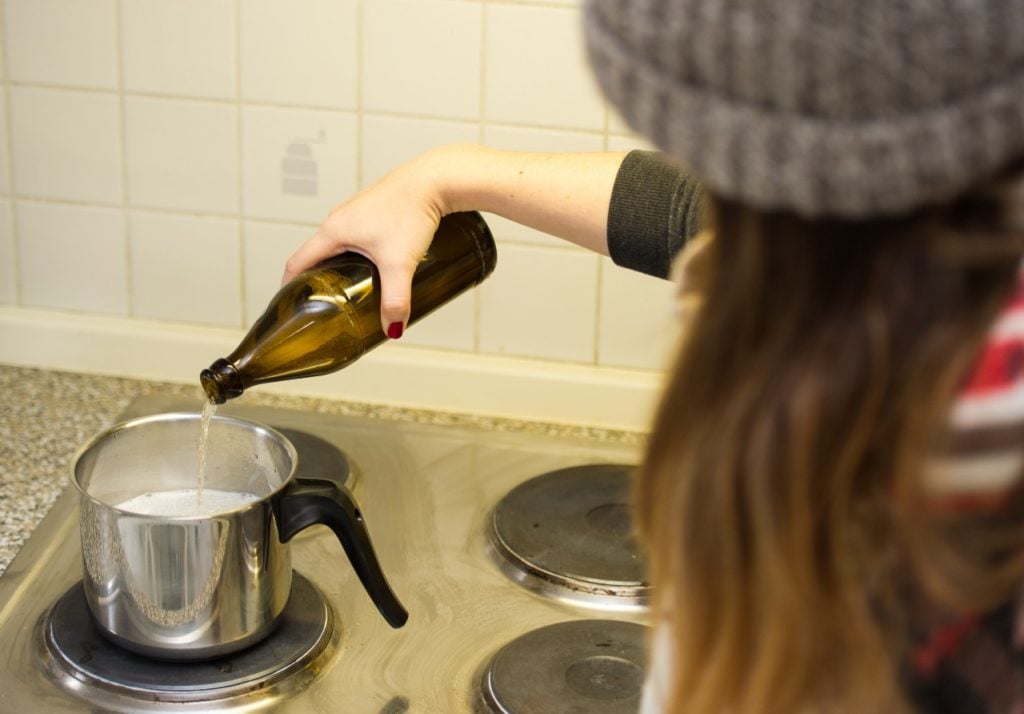5 ways to fight colds and flu like a true German

Winter in Germany can be unbearably cold and bring with it familiar bouts of seasonal sicknesses. But don’t worry – here are five ways you can fight them like a native.
1. Don’t go to work
One of the more pleasant culture shocks you may have when moving to Germany is discovering the German attitude to sickness, which follows the motto: if you’re sick - stay at home.
In the German working environment, coughing and sniffling at your desk is very much frowned upon – employers expect and encourage their staff to go home if they are unwell and to take the time they need to recover. Germans believe so much in the power of rest and recuperation that employees can even claim back vacation days if they get sick on their holidays.
So if you’ve got flu or even “just” a cold, don’t go to work and if you mostly work from home – don’t work. Most Germans would say you shouldn't work at all when you're sick, not even if you have a job where you can work from home.
READ ALSO: Herbal tea and sick leave: An American's ode to the German attitude towards health
2. Keep your feet warm
Many a German Oma (Grandma) will tell you that the key to keeping winter maladies at bay is by keeping your feet warm.
And they’re not wrong. Several studies have shown that in times when colds are circulating, the likelihood of catching the sniffles increases significantly for people with cold feet.

A woman lies in her living room in Cologne wearing thick winter socks. Photo: picture alliance / dpa | Rolf Vennenbernd
That’s why Germans have a variety of warming treats for their toes in the cold months. Most German houses will have a collection of Hausschuhe (slippers) and thick Haussocken (house socks) waiting for them and their guests at the front door.
Another favourite are Wärmflaschen (hot water bottles) which are great for keeping your feet warm especially in bed on cold winter nights.
3. Reach for the herbs, not the chemicals
The fact that medicines like Ibuprofen and Paracetamol are only available to buy from pharmacies in Germany, and not from supermarkets and cosmetics shops, tells you something about the German attitude to taking medicine.
READ ALSO: Why are medicines in Germany only available in pharmacies?
Many Germans will try to combat colds and flu with natural solutions, rather than chemical ones and many doctors recommend herbal remedies.
Erkältungstee (cold tea), Ingwer-Zitrone (ginger and lemon) and Kamille (chamomile) teas mixed with Honig (honey) are very popular herbal drinks for combatting winter sicknesses in Germany.
Steam inhalations and foot baths of hot water mixed with herbs such as eucalyptus, mountain pine, primrose, elderberry or thyme are also beloved remedies for clearing the airways and bringing down temperatures.
For sore throats, gargling warm water mixed with salt is a commonly used remedy, while homemade recipes for cough syrups – such as a mix of onion and honey - are also popular.
4. Drink a warm beer
Another one you might hear from Oma or Opa is the very German-sounding solution of drinking a warm beer to combat a cold.
It may sound like an unlikely solution, but there is some scientific reasoning behind it.

A young woman pours a beer into a pot. Photo: picture alliance / dpa | Christina Sabrowsky
The essential oils and bitter substances from hops and malt – the main ingredients in beer - promote sleep and calm, while the alcohol in beer also has an antibacterial effect. Heating the mixture not only helps keep you warm but also promotes blood circulation.
READ ALSO: Colds and flu: What to do and say if you get sick in Germany
If you try this remedy, make sure not to boil the beer - or the alcohol will evaporate. Also, avoid this one if you have a fever, as in that case you need to keep well hydrated.
And of course - don't drink too much. One beer, consumed in small sips should be enough to give you a boost.
5. Get some fresh air
For most Germans, there's nothing quite a healthy dose of fresh air.
That's why many believe that, with a mild cold, a short walk in the great outdoors at least once a day can help get you back in full working order more quickly than if you stay inside for a long time.
For those with a heavier dose of flu, however, it's better to stay indoors and let the fresh air come to you. The classic German habit of Lüften - ventilating - is seen as an important measure for speeding up recovery, as exchanging stale, germ-filled air, with a fresh blast from the outside can help get the circulation going and makes it easier to breathe.
READ ALSO: Lüften: Why Germans are obsessed with the art of airing out rooms
Comments
See Also
1. Don’t go to work
One of the more pleasant culture shocks you may have when moving to Germany is discovering the German attitude to sickness, which follows the motto: if you’re sick - stay at home.
In the German working environment, coughing and sniffling at your desk is very much frowned upon – employers expect and encourage their staff to go home if they are unwell and to take the time they need to recover. Germans believe so much in the power of rest and recuperation that employees can even claim back vacation days if they get sick on their holidays.
So if you’ve got flu or even “just” a cold, don’t go to work and if you mostly work from home – don’t work. Most Germans would say you shouldn't work at all when you're sick, not even if you have a job where you can work from home.
READ ALSO: Herbal tea and sick leave: An American's ode to the German attitude towards health
2. Keep your feet warm
Many a German Oma (Grandma) will tell you that the key to keeping winter maladies at bay is by keeping your feet warm.
And they’re not wrong. Several studies have shown that in times when colds are circulating, the likelihood of catching the sniffles increases significantly for people with cold feet.

That’s why Germans have a variety of warming treats for their toes in the cold months. Most German houses will have a collection of Hausschuhe (slippers) and thick Haussocken (house socks) waiting for them and their guests at the front door.
Another favourite are Wärmflaschen (hot water bottles) which are great for keeping your feet warm especially in bed on cold winter nights.
3. Reach for the herbs, not the chemicals
The fact that medicines like Ibuprofen and Paracetamol are only available to buy from pharmacies in Germany, and not from supermarkets and cosmetics shops, tells you something about the German attitude to taking medicine.
READ ALSO: Why are medicines in Germany only available in pharmacies?
Many Germans will try to combat colds and flu with natural solutions, rather than chemical ones and many doctors recommend herbal remedies.
Erkältungstee (cold tea), Ingwer-Zitrone (ginger and lemon) and Kamille (chamomile) teas mixed with Honig (honey) are very popular herbal drinks for combatting winter sicknesses in Germany.
Steam inhalations and foot baths of hot water mixed with herbs such as eucalyptus, mountain pine, primrose, elderberry or thyme are also beloved remedies for clearing the airways and bringing down temperatures.
For sore throats, gargling warm water mixed with salt is a commonly used remedy, while homemade recipes for cough syrups – such as a mix of onion and honey - are also popular.
4. Drink a warm beer
Another one you might hear from Oma or Opa is the very German-sounding solution of drinking a warm beer to combat a cold.
It may sound like an unlikely solution, but there is some scientific reasoning behind it.

The essential oils and bitter substances from hops and malt – the main ingredients in beer - promote sleep and calm, while the alcohol in beer also has an antibacterial effect. Heating the mixture not only helps keep you warm but also promotes blood circulation.
READ ALSO: Colds and flu: What to do and say if you get sick in Germany
If you try this remedy, make sure not to boil the beer - or the alcohol will evaporate. Also, avoid this one if you have a fever, as in that case you need to keep well hydrated.
And of course - don't drink too much. One beer, consumed in small sips should be enough to give you a boost.
5. Get some fresh air
For most Germans, there's nothing quite a healthy dose of fresh air.
That's why many believe that, with a mild cold, a short walk in the great outdoors at least once a day can help get you back in full working order more quickly than if you stay inside for a long time.
For those with a heavier dose of flu, however, it's better to stay indoors and let the fresh air come to you. The classic German habit of Lüften - ventilating - is seen as an important measure for speeding up recovery, as exchanging stale, germ-filled air, with a fresh blast from the outside can help get the circulation going and makes it easier to breathe.
READ ALSO: Lüften: Why Germans are obsessed with the art of airing out rooms
Join the conversation in our comments section below. Share your own views and experience and if you have a question or suggestion for our journalists then email us at [email protected].
Please keep comments civil, constructive and on topic – and make sure to read our terms of use before getting involved.
Please log in here to leave a comment.